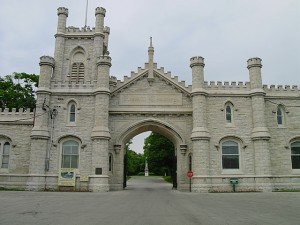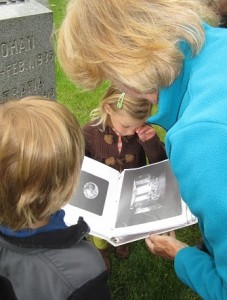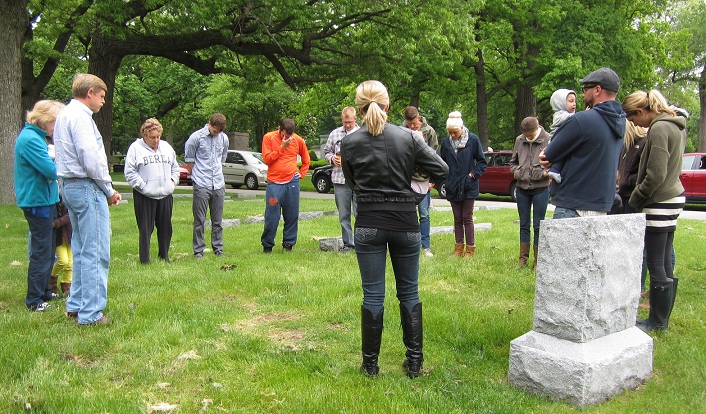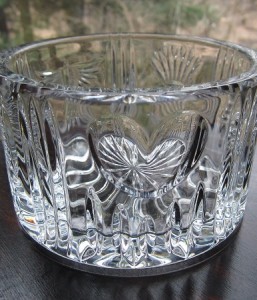It was back to the cemetery for our family today, a tradition of nearly 50 years. If we count our parents’ visits, it’s much longer than that.
So, in this morning’s cold rain, 8 car-loads of relatives left Michigan and headed toward Chicago’s Rosehill Cemetery located at Bryn Mawr and Western Avenues. Though we have no formal program there each Memorial Day, the family historian (Mary) encourages people to prepare memories, even silly ones, about any of those buried in the family plot.
Today our brother Tom started, having brought a book detailing the history of this interesting cemetery, including its Civil War veterans. He read aloud, describing the notables buried nearby, and we were reminded of the care some take to leave detailed burial instructions for their heirs. All of us hope to be remembered well, and in an effort to shape the thinking of those still living, Rosehill burial monuments range from fascinating to bizarre.
This morning Mary brought photos of past cemetery visits when the adult children present today were still babies. Her notebook included large photos of each deceased relative, and she showed the children how to match the pictures to the tombstone names. The idea of death being a part of everyone’s earthly life is a topic we’ve all been encouraged to freely discuss.
We talked about Nate (the most recent death) and his loyalty to his law clients, his infectious laugh, and his soldiering on through difficulties.
We also talked of Dad bringing Mom to this spot on some of their first dates in 1940. He was letting her know that family was a top priority with him, and it might even have been a test to see if she felt the same. Now, after 50 years of marriage, they’re buried side-by-side.
Dad had also mentioned that since his brother and mother both died in the early 1900’s before effective embalming and weatherproof caskets, their bodies had probably decomposed. He told us, ”Most likely their remains are feeding the roots of this big oak tree here.”
We found his comment odd and also funny, but it revealed an acceptance of death as part of life. Dad believed, as the rest of us do, that those buried in the family plot had gone ahead to better lives.
Key words? “Gone ahead.”
These deceased relatives now know far more than we do about life after death. Though their bodies may have deteriorated at the end of their lives and after death, their spirits soared to life-spectacular. That’s why we can stand at the cemetery every Memorial Day and talk openly of their lives and deaths without spooky feelings, uncertainty, or fear. We’re confident each of them is privy to a happy ending. Thankfully, the rest of us can be sustained by the same hope.
Traveling 200 miles today to be reminded of that was well worth the drive.
“In [God’s] great mercy he has given us new birth into a living hope through the resurrection of Jesus Christ from the dead, and into an inheritance that can never perish, spoil or fade. This inheritance is kept in heaven for you.” (1 Peter 1:3-4)











